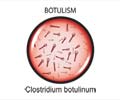Exposures of pregnant women and children to common thyroid-hormone-disrupting toxins may be associated with the increased incidence of brain development disorders.

In this review, Professor Barbara Demeneix and colleagues at the Centre National de la Recherche Scientifique, Université Paris-Sorbonne, examine published evidence of the wide variety and high number of EDCs, from pesticides to chemicals used in the manufacture of drugs, cosmetics, furniture and plastics, that can all interfere with TH. The authors further highlight that complex mixtures of these thyroid-disrupting chemicals are present in all humans, including children and pregnant women.
Prof Barbara Demeneix comments, "We have reviewed the documented exposures of pregnant women and children to mixtures of thyroid-hormone-disrupting chemicals and propose that the data sets provide a plausible link to the recent increased incidence of neurodevelopmental conditions, including autism spectrum disorders and attention deficit hyperactivity disorders." Prof Demeneix continues, "Many experts in the field, consider that the current testing guidelines for thyroid-disrupting chemicals are not sufficiently sensitive, do not take into account recent findings and do not adequately consider risks to vulnerable populations, such as pregnant women."
Source-Eurekalert















